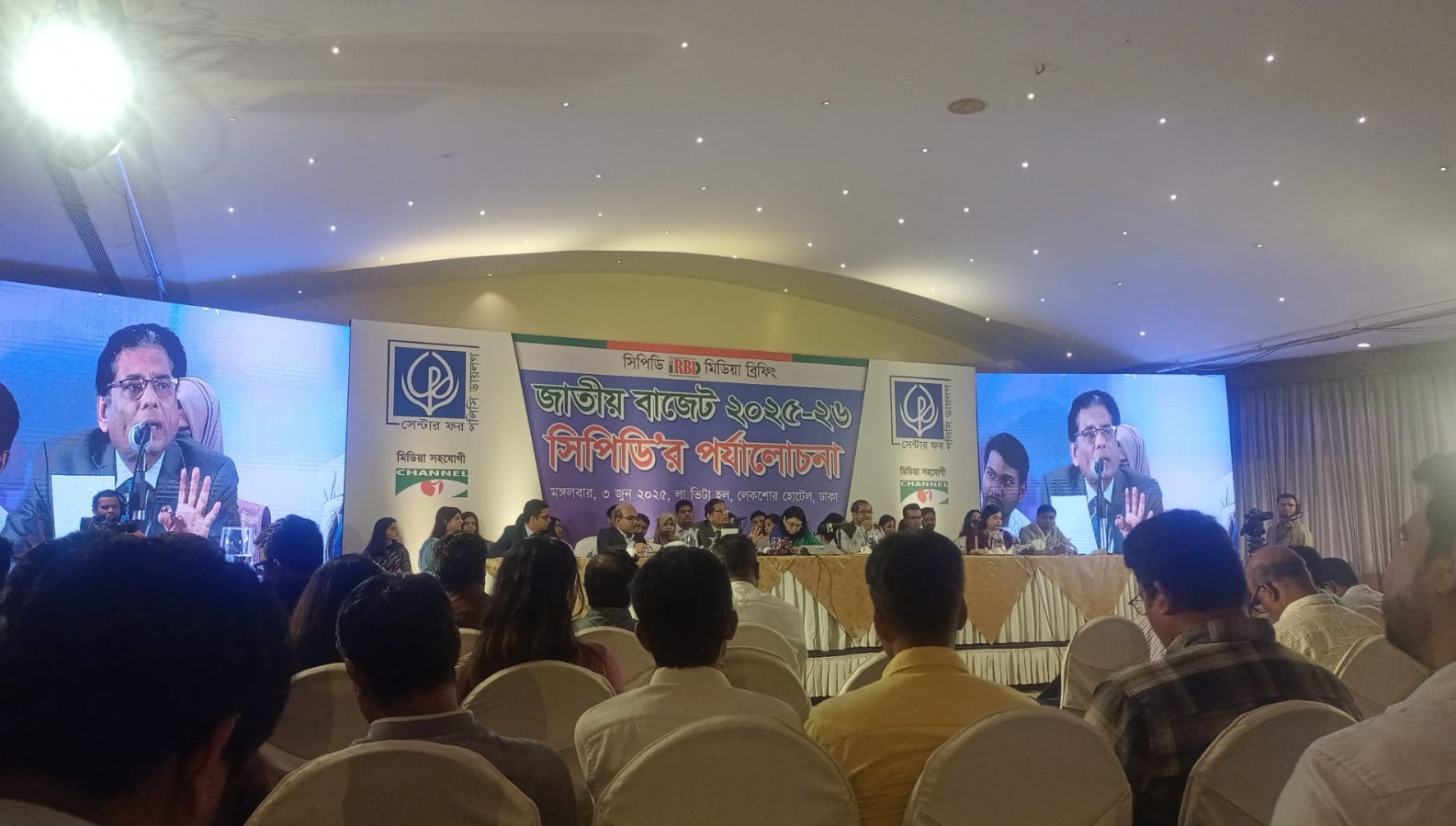
The proposed national budget for the 2025–26 financial year lacked the structural boldness and holistic approach needed to bring Bangladesh out of its current economic distress, said the Centre for Policy Dialogue, a local think tank, on Tuesday.
It observed that the tax measures proposed in the budget were also a clear sign of systemic inequality in the tax structure.
While the budget’s tone appears cautious and restrained, the think tank said, it fails to respond meaningfully to deep-rooted concerns like inflation, falling public confidence, inefficient expenditure and worsening inequality.
‘The proposed budget has failed to address the current economic challenges holistically,’ said the CPD while analysing the proposed national budget, which was unveiled by the interim government’s finance adviser, Salehuddin Ahmed, on Monday.
At a media briefing held at the Lakeshore Hotel in the capital Dhaka, CPD executive director Fahmida Khatun expressed concern over the proposed adjustments to the tax-free income threshold in the FY26 budget, calling the measure inadequate and poorly timed.
While the government has proposed raising the threshold from Tk 3.5 lakh to Tk 3.75 lakh, the research organisation said, this change would only take effect in the 2026–27 and 2027–28 financial years — rendering it ineffective in addressing current inflationary pressures.
The CPD described the relief as insignificant given the projected rise in living costs by that time.
The think tank warned that the tax burden would continue to fall disproportionately on lower-middle- and middle-income earners, particularly those with annual incomes between Tk 6 lakh and Tk 16 lakh.
Meanwhile, individuals earning over Tk 30 lakh a year would enjoy lower effective tax rates — a disparity the CPD highlighted as a clear sign of systemic inequality in the tax structure.
Fahmida also described the 6.5-per cent inflation target set in the budget as overly ambitious.
Based on recent monthly trends, she observed that keeping inflation within that range would be extremely difficult.
Indirect tax hikes on essential items and services would increase living costs.
Moreover, the continuation of money legalising schemes sends a wrong signal, undermining honest taxpayers and contradicting the interim government’s stated anti-corruption drive, Fahmida added.
On the issue of revenue collection, CPD distinguished fellow Mustafizur Rahman warned that the ‘ambitious’ revenue target would be difficult to achieve amid inefficiencies and lack of structural changes in tax administration.
Salehuddin projected an overall income of Tk 5.64 lakh crore, of which some 88.4 per cent is expected to come through the National Board of Revenue through direct tax, duty and value-added tax.
Mustafizur said that the government had virtually surrendered to the revenue department in this budget.
While some aspects of the budget such as the projected growth rate, debt structure and tax inequality were anticipated, they remain as deeply concerning, the CPD observed.
Although the total social safety net allocation excluding pensions rose slightly as a share of the budget — from 9 per cent to 10.3 per cent — many critical programmes have seen budget cuts.
Allocations for primary school stipends, food-for-work programmes and textbook distribution have been reduced.
The budget entirely dropped stipends for undergraduate, postgraduate and physically challenged students. Several vital community-level programmes, such as coastal water supply and urban healthcare, have become severely underfunded or seen fund cuts.
The education sector share in the budget remains stuck at 1.53 per cent of the gross domestic product, well below the national target of 3.5 per cent, and per capita spending on the primary education has dropped.
The health sector has seen a 13-per cent cut in development allocations, despite a marginal increase in the overall funding.
These reductions are seen as particularly short-sighted given growing demands for quality public services in the face of inflation and unemployment.
The annual development programme is another area of concern. While the ADP size has been reduced, which the CPD supports for the sake of macroeconomic discipline, the pattern of weak project planning persists.
Nearly 48 per cent of the ADP investment projects has already been revised up to four times, and many carryover projects are likely to continue receiving funds without completion.
Over 16 high-priority projects are being rolled over, often due to poor planning and funding gaps.
Symbolic allocations of Tk 1 lakh or less — used to keep projects on the books — have increased, indicating inefficient project selection and weak implementation oversights.





